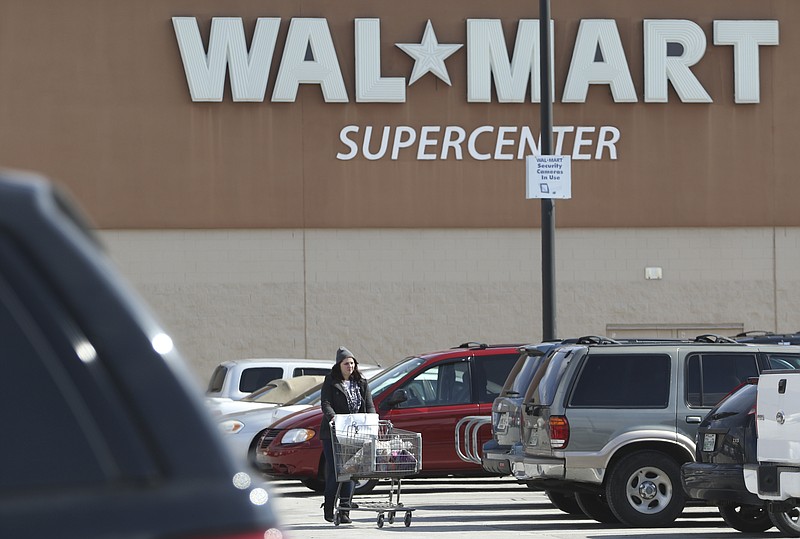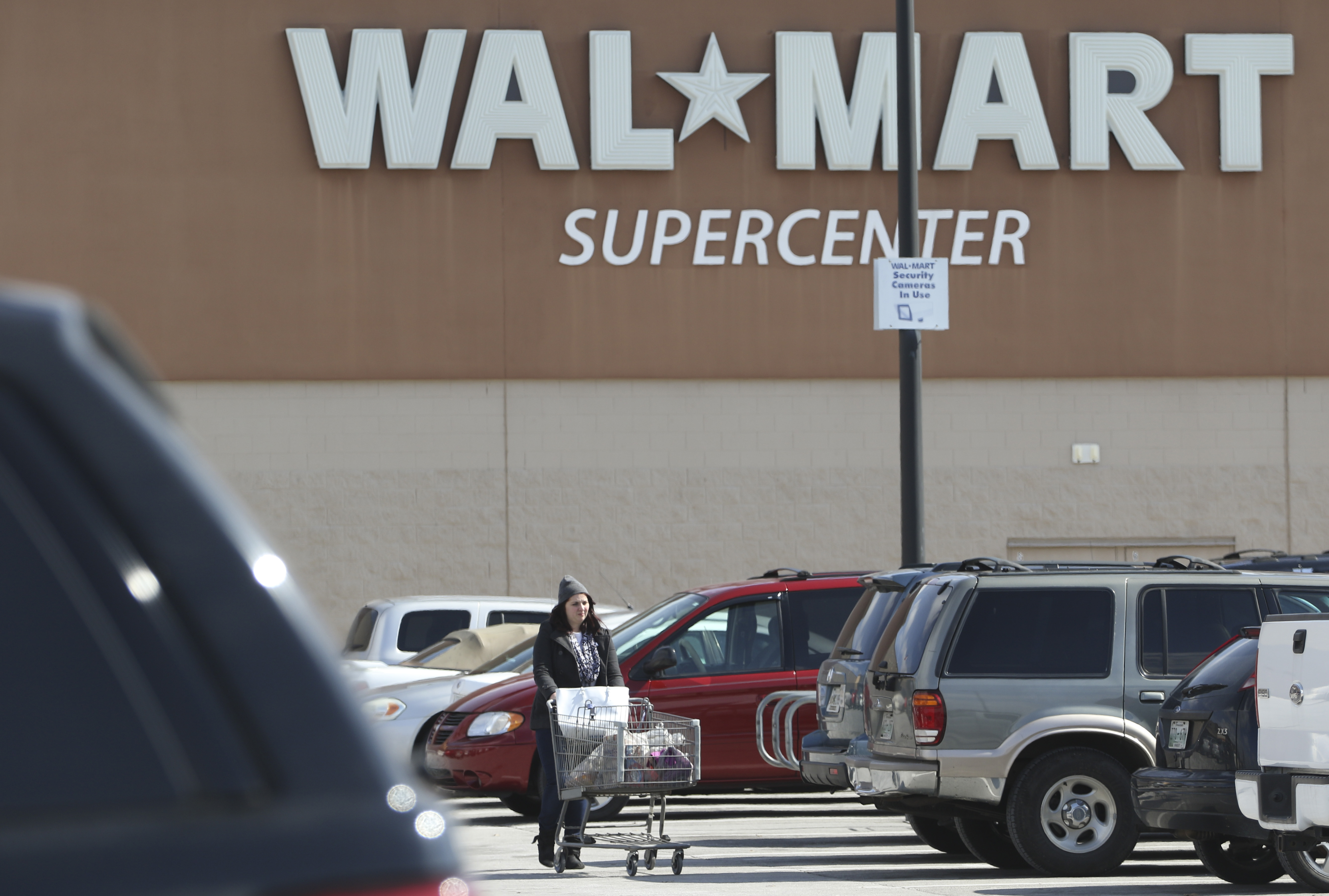Six-year Chattanooga Wal-Mart employee Joy Ramsey had three words to say about the company's plans to bolster wages and change how it pays and trains its workers: "It's about time."
Wal-Mart Stores Inc., as part of its biggest investment in worker training and pay ever, announced Thursday that within the next six months it will give raises to about 500,000 workers, or nearly 40 percent of its 1.3 million U.S. employees.
Wal-Mart told The Associated Press the company will start raising entry-level wages to at least $9 an hour in April and to at least $10 an hour by February of next year. That includes the fewer than 6,000 workers who make the federal minimum wage.
Sam's Club locations will offer a starting hourly wage of at least $9.50 or higher in all markets, and at least $10.50 by next year.
Ramsey, a zone manager at Wal-Mart's Signal Mountain Road store, said she didn't think she'd personally benefit from a pay raise due to her tenure, but expected that some of her colleagues will and cheered the announcement.
Joe Sutherland, a five-month Wal-Mart worker who was gathering shopping carts outside the store, said he started at minimum wage. He was glad to see the company announcement and expected the pay bump will help him and some of his fellow workers at the store.
Wal-Mart said it didn't immediately know how many of its Chattanooga-area workers make minimum wage now, or how many will benefit from a pay raise.
With its new changes, the company's average full-time wage will be $13 an hour, up from $12.85. For part-time workers, the hourly wage will be $10, up from $9.48.
That's below the $14.65 average that hourly retail workers in a nonsupervisory role earn, according to government data that includes people who work at auto dealers and other outlets that would likely pay more than discounters like Wal-Mart.
But it's above the $9.93 average hourly pay for cashiers and low-level retail sales staff, according to Hay Group's survey of 140 retailers with annual sales of $500 million.
In addition, the company will raise the floor and ceiling of its pay range for each position in most stores. For example, the pay range for cashiers is $7.65 to $16. The new range will be $9.00 to $17.55.
Additionally, Wal-Mart will raise the starting wage for some department managers to at least $13 an hour by this summer and at least $15 an hour by early next year.
Amanda Henneberg, a Wal-Mart spokeswoman for the region, said in a statement that the changes are more than just about starting wages.
"We also announced we'll offer better training and development opportunities so people can advance to jobs that pay $15 an hour or more," she said. "These changes are right for our associates and for our business. And I think you'll see a difference in our stores with better service for our customers."
Wal-Mart operates about 22 stores within a 50-mile radius of Chattanooga. The retailer is introducing to the area its Neighborhood Market format to expand its grocery presence to capture food sales from dollar stores and convenience stores.
Michael Saltsman, research director at the Washington, D.C.-based Employment Policies Institute, said the Wal-Mart decision exemplifies how wages rise in a free economy by choice, not by government mandate.
"Just because a $10 minimum wage is the right choice for Wal-Mart, however, does not mean it should be mandated for all other businesses, regardless of industry or size," he said in a statement. "The rash of recent small business closures in San Francisco as a consequence of the city's recently passed 36 percent minimum wage hike highlights the folly of raising wages by fiat."
Wal-Mart follows other retailers that have boosted hourly pay recently, but because it's the nation's largest private employer, the impact of its move will be more closely watched.
"Economic conditions are getting better and employers need and want to pay their workers more to keep them on the job," said John Silvia, chief economist for Wells Fargo in Charlotte, N.C. "For Wal-Mart, I think they are trying to avoid costly turnover of their workers. They need people on the job; their business has improved, and they need people in their stores who can effectively service their customers."
Silvia told the CFA Society of East Tennessee in Chattanooga on Thursday that most workers should enjoy bigger paychecks this year with wage gains increasing from an average 1.9 percent gain last year to an average increase this year of 2.25 percent.
"Wage growth should be adequate to sustain an improving economy, which we see for at least the next couple of years," he said.
In addition to raises, Wal-Mart said it plans to make changes to how workers are scheduled and add training programs for sales staff so that employees can more easily map out their future at the company.
"We are trying to create a meritocracy where you can start somewhere and end up just as high as your hard work and your capacity will enable you to go," CEO Doug McMillon told the AP during an interview this week at the company's headquarters in Bentonville, Ark.
The changes, which Wal-Mart announced Thursday as it reported fourth-quarter results, come at a time when there's growing concern for the plight of the nation's hourly workers.
Thousands of U.S. hourly workers and their supporters have staged protests across the country in the past couple of years to call attention to their financial struggles.
Business groups and politicians have jumped into the fray, debating a proposal by President Obama to raise the federal minimum wage from $7.25 to $10.10 an hour.
Staff writer Mike Pare and Business Editor Dave Flessner contributed to this report.

